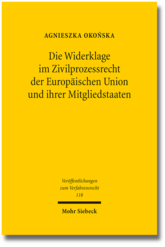On July 16, 2015, the often-thought-of-as-“liberal” (but it may surprise you) Ninth Circuit issued a decision confirming the high hurdles to bring suit against non-U.S. corporations in U.S. courts (and also confirmed how hard it can be to bring suit against U.S. corporations for alleged harms occurring abroad). The plaintiff in the case, Loredana Ranza (a U.S. citizen residing in the Netherlands at the time of suit and now living in Germany), brought suit against her Netherlands employer, Nike European Operations Netherlands, B.V. (NEON), and its parent corporation, Nike, Inc., for violations of federal law prohibiting sex and age discrimination. The questions before the Court were (1) whether NEON was subject to general jurisdiction in Oregon, (2) whether Nike’s contacts with Oregon could be attributed to NEON to establish general jurisdiction, and (3) whether the case should be dismissed on forum non conveniens grounds.
As to NEON, the Ninth Circuit noted that merely doing business in the forum state cannot suffice for purposes of general jurisdiction. The Court deemed it insufficient to establish general jurisdiction that NEON employees traveled frequently to Oregon and entered into business agreements there. Thus, because NEON did not have its principal place of business and was not incorporated in Oregon, it was not subject to general jurisdiction. Note: there has been some question following recent Supreme Court decisions whether merely “doing business” in the forum can establish general jurisdiction. The Ninth Circuit has come down on the side of “no,” which could be very influential as other courts continue to deal with this issue.
Next, the Court considered whether Nike’s contacts could be attributed to NEON to establish general jurisdiction. Note the twist: most imputation cases involve using a domestic subsidiary’s contacts with the forum state to get jurisdiction over a foreign parent corporation. This question had been briefed but was not decided by the Supreme Court in its Daimler decision. Here, the Ninth Circuit held that contacts could only be attributed when the subsidiary acts as the alter ego of the parent. Because the plaintiff could not show that the corporate formalities were not observed, Nike’s contacts could not be imputed to NEON. In so holding, the Ninth Circuit interred its agency test for attribution, whereby contacts could be imputed when the subsidiary performed “important” work that the parent would have to do for itself if the subsidiary did not exist. In light of the alter ego test, it will now be incredibly hard to base jurisdiction on attribution of contacts in the Ninth Circuit.
Finally, since Nike was subject to general jurisdiction in Oregon, the Court considered whether the case should be dismissed on forum non conveniens grounds. According to the Court, “[o]n balance, the inconvenience of litigating this case in Oregon, the inefficiency and inadvisability of relitigating claims the Dutch ETC has already decided, and the adequacy of the ETC as an alternative forum establish that the District of Oregon is not an appropriate forum for Ranza’s claims.”
Taken as a whole, this case confirms that U.S. may be moving away from permissive jurisdictional rules, and that the U.S. may no longer be quite such a magnet forum.
